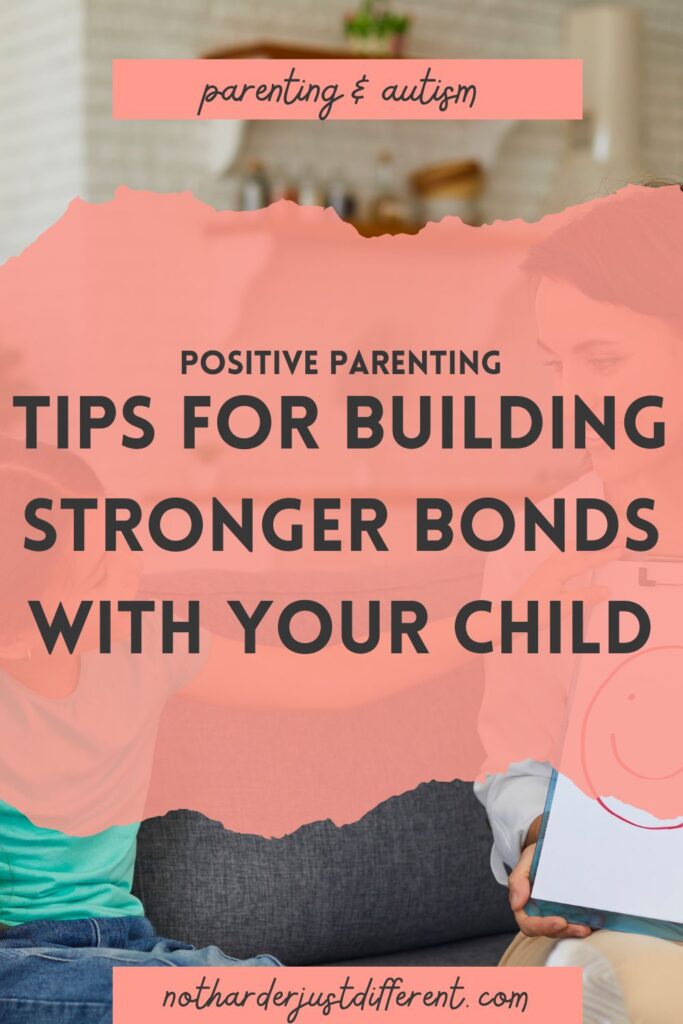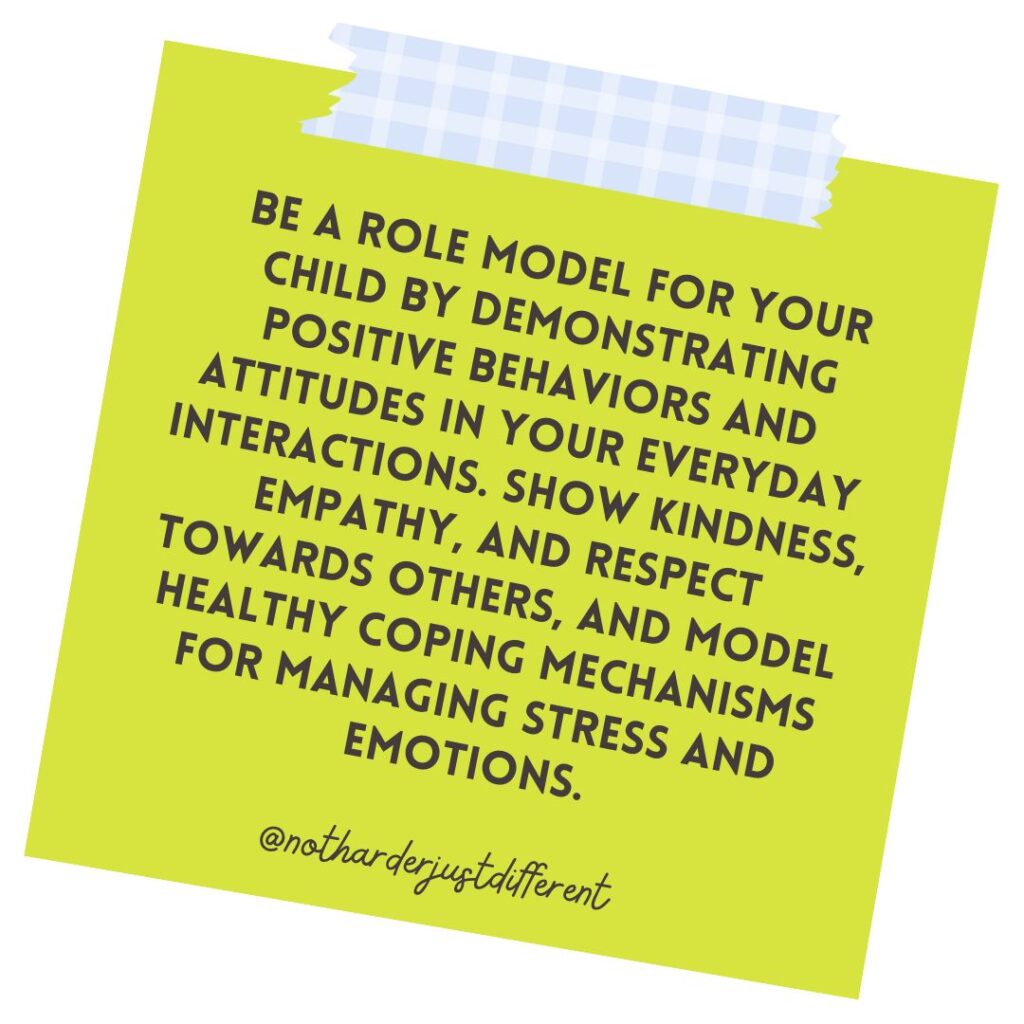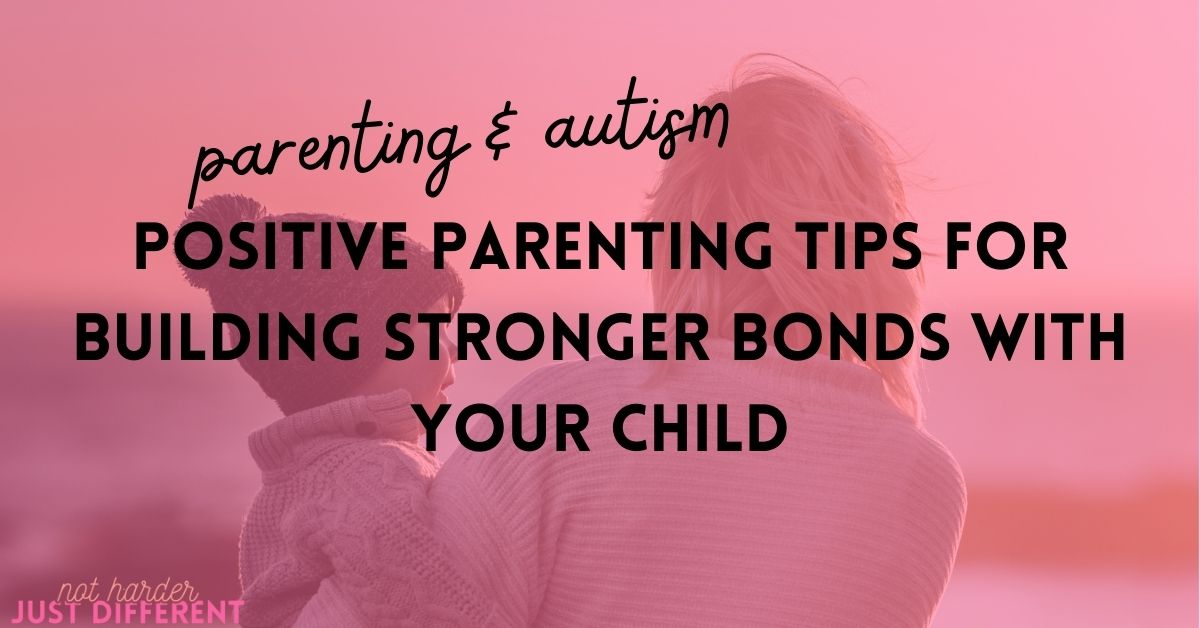Disclaimer: As a future Licensed Clinical Social Worker (LCSW) currently pursuing my master’s degree, I am passionate about sharing insights and information related to parenting, autism and homeschooling based on my personal experiences and research. However, the content shared on this blog is not intended to substitute professional advice, diagnosis, or treatment. Parenting is a deeply personal journey, and while I strive to provide valuable insights, every family and situation is unique. Readers are encouraged to consult with qualified professionals for personalized guidance tailored to their specific needs and circumstances.
Are you ready to step up your Positive Parenting game? I’ve got 10 positive parenting tips to help you build stronger bonds with your kiddos. Positive parenting isn’t just about discipline—it’s about fostering love, trust, and connection with your little ones. Let’s explore some practical strategies for positive parenting success!
So, what exactly is positive parenting? It’s all about nurturing a supportive and loving environment where children feel valued, understood, and empowered to thrive. Positive parenting emphasizes mutual respect, active listening, and problem-solving skills, laying the foundation for healthy parent-child relationships. It’s about focusing on the positives, building trust through open communication, and guiding your children with empathy and respect.
Why choose positive parenting? Well, for starters, it promotes a strong bond between parent and child, fostering trust, empathy, and understanding. Positive parenting also helps build your child’s self-esteem, resilience, and emotional intelligence, setting them up for success in life. Plus, it creates a harmonious and supportive family environment where everyone feels valued and respected. Ready for some tips? Hopefully you find something that helps you and your kids on your positive parenting journey.

Positive Parenting Tips to Make Positive Parenting Easier for You and Your Kids
Practice active listening
Take the time to truly listen to your child’s thoughts, feelings, and concerns without interrupting or judging. Show genuine interest in what they have to say, and validate their emotions by acknowledging and reflecting back their words.
Offer praise and encouragement
Celebrate your child’s efforts and achievements, no matter how big or small, with words of praise and encouragement. Let them know that you’re proud of their hard work and determination, and highlight specific strengths and qualities you admire.
Set clear and consistent boundaries
Establish clear rules and expectations for behavior, and communicate them in a positive and respectful manner. Be consistent in enforcing boundaries and follow through with appropriate consequences when necessary, helping your child understand the importance of accountability and responsibility.

Lead by example
Be a role model for your child by demonstrating positive behaviors and attitudes in your everyday interactions. Show kindness, empathy, and respect towards others, and model healthy coping mechanisms for managing stress and emotions.
Use positive reinforcement
Reinforce positive behaviors by offering praise, rewards, or privileges when your child demonstrates desired actions or attitudes. Positive reinforcement helps reinforce good habits and encourages your child to continue making positive choices.
Foster open communication
Create a safe and supportive environment where your child feels comfortable expressing themselves openly and honestly. Encourage dialogue by asking open-ended questions, actively listening to their responses, and validating their feelings without judgment.
Encourage independence
Support your child in developing autonomy and self-confidence by allowing them to make age-appropriate decisions and take on responsibilities. Offer guidance and encouragement as they navigate new challenges and experiences, empowering them to become capable and self-reliant individuals.
Show empathy and understanding
Validate your child’s feelings and perspectives by demonstrating empathy and understanding in moments of distress or conflict. Let them know that you’re there to support and comfort them, even when they’re struggling with difficult emotions.
Practice patience and mindfulness
Stay calm and patient in challenging situations, and avoid reacting impulsively or harshly out of frustration. Take a moment to pause and breathe, and respond to your child with compassion and mindfulness, modeling healthy coping strategies for managing stress and frustration.
Prioritize quality time together
Make time for meaningful interactions and activities that strengthen your bond and create lasting memories. Whether it’s playing games, going for walks, or simply having heart-to-heart conversations, prioritize quality time together to nurture your relationship and deepen your connection with your child.
How do positive parenting tips differ from traditional discipline methods?
Positive parenting tips differ from traditional discipline methods in their approach and focus. While traditional discipline methods often rely on punishment and control to modify behavior, positive parenting emphasizes nurturing and teaching through positive reinforcement, open communication, and empathy. Instead of using fear or shame to enforce rules, positive parenting seeks to build trust and mutual respect between parent and child, fostering a supportive and loving environment where children feel valued and understood.
Do you have any positive parenting tips for single parents juggling multiple responsibilities?
Absolutely! I will definitely be doing a whole post on this in the future. A few quick tips: First, it’s essential to prioritize self-care and seek support from friends, family, or community resources whenever possible. Creating a reliable support network can help alleviate stress and provide much-needed assistance during challenging times. Next, establishing routines and schedules can help streamline daily tasks and ensure that both parents and children know what to expect. Last, When it comes to parenting, focus on quality over quantity by making the most of the time spent together—whether it’s engaging in meaningful conversations, sharing laughter, or enjoying simple activities like cooking or reading together.
By embracing strategies rooted in warmth, empathy, and clear communication, you can create a supportive and nurturing environment where your child feels loved, valued, and understood. Remember, positive parenting is not about perfection but about the journey of growth and connection with your child. As you implement these tips and navigate the ups and downs of parenting, celebrate the small victories, and be gentle with yourself during the challenges. With patience, consistency, and a whole lot of love, you can build strong bonds with your child and create a harmonious family dynamic that lasts a lifetime.

